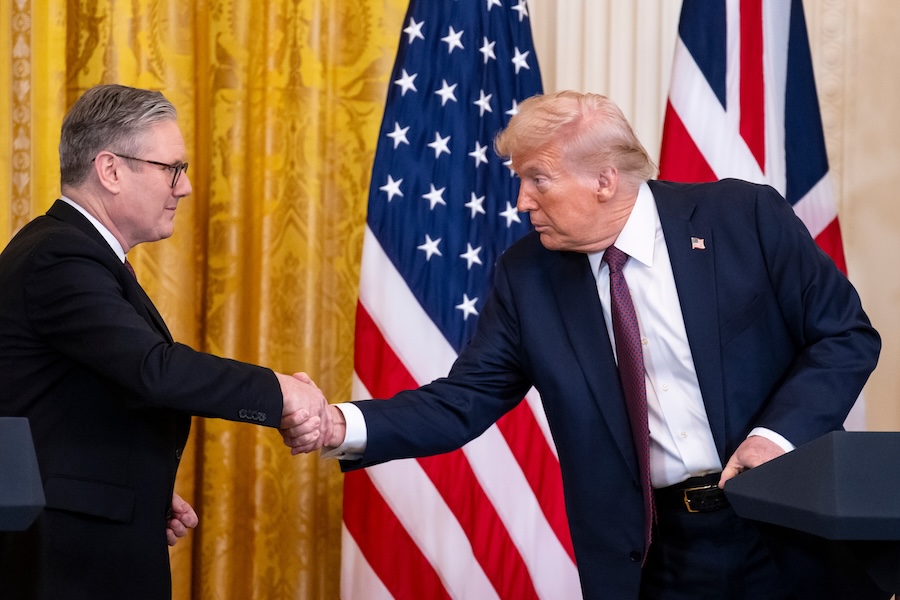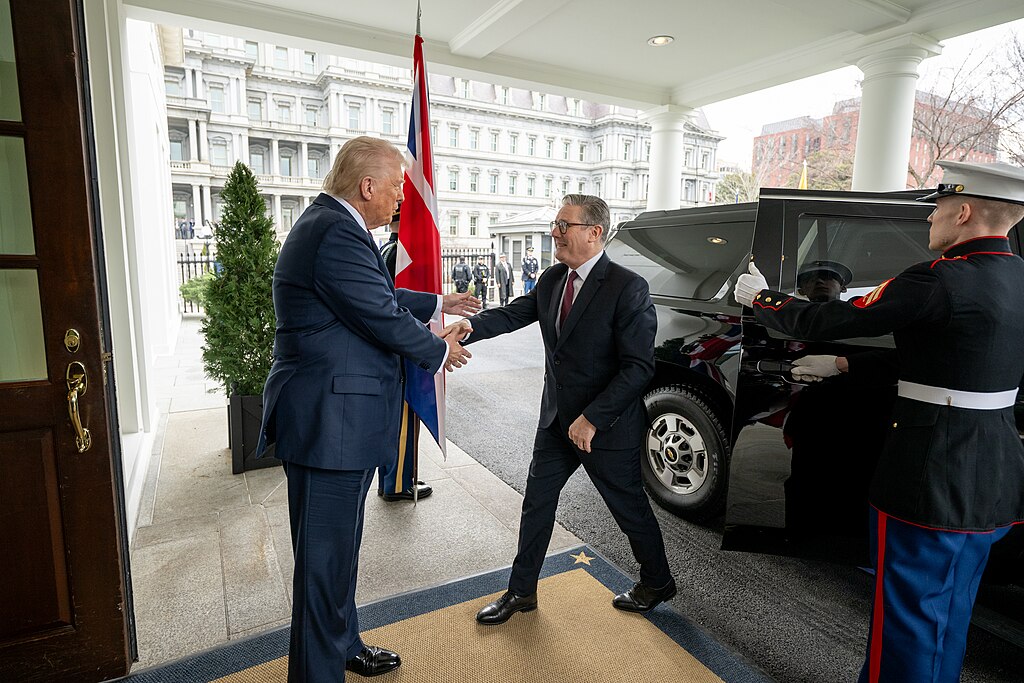Politics
NEW: U.K. Seeks New Trade Deal With U.S. In Effort To Avoid Trump’s Tariffs

The British government is hoping to negotiate a last minute, post-Brexit trade agreement with the U.S. in order to avoid, or at least mitigate, tariffs on European imports that are expected to be announced by President Trump next week.
Britain has been seeking to work out a new trade deal with the United States since leaving the European Union in 2020, though negotiations had stalled under the previous Conservative Party government. Curren Prime Minister Kier Starmer of the Labour Party met with President Trump at the White House back in February and left feeling confident that an agreement could be reached.
Trump seemed to agree, stating that a “great” deal that could help Britain avoid incoming tariffs was on the table. Business Secretary Jonathan Reynolds recently visited Washington in order to continue the talks, while Trump and Starmer held another conversation over the phone earlier this week.
The talks have intensified ahead of April 2, or “Liberation Day” as President Trump is calling it, when the president is expected to announce reciprocal tariffs on a number of trading partners, including the U.K. and the European Union. While Trump has imposed tariffs on goods imported from Canada, Mexico and China, he has yet to impose any on the European Union or the U.S., though he has suggested that he will do so in the future.
“Am I going to impose tariffs on the European Union? Do you want the truthful answer or should I give you a political answer? Absolutely” the president told reporters back in January. “Absolutely. The European Union has treated us so terribly,” Trump stated, reaffirming his longstanding concerns about the bloc’s trade practices.
In December, Trump called on European nations to rectify trade imbalances with the United States by purchasing more American energy. “Otherwise, it is TARIFFS all the way!!!” Trump posted on Truth Social.

President Trump meets with U.K. Prime Minister Keir Starmer at the White House
Trump has indicated that he will be placing steep tariffs on imported vehicles and auto parts, while additional tariffs appear to be imminent.
“We’re engaged in discussions with the United States about mitigating the impact of tariffs,” Starmer told reporters earlier this week. Finance Minister Rachel Reeves on Thursday said Britain would not seek to “escalate” trade wars, a contrast from Canada and European Nations, all of whom have vowed to “retaliate” even though they already have tariffs on American goods.
For example, the EU imposes 10 percent tariffs on the American auto industry compared to just 2.5 percent for European cars entering the United States.
The U.K. has described a potential agreement as an “economic prosperity deal,” though Downing Street has conceded that they will not be getting the “free trade” agreement they had hoped to obtain.
“Some type of arrangement that might let the UK escape some tariffs is possible but it would not be a full-scale trade deal,” Jonathan Portes, professor of economics at King’s College London told the Associated Press. “Brexit is a double edged sword — it gives us more flexibility and we can negotiate with a view to our own interests.”
“But equally, it means we have less weight than as part of the EU and moreover we cannot afford to agree to anything that complicates our trading relationship with the EU,” Portes added.
The talks come as British auto industry giant Rolls Royce recently told shareholders that they will be seeking to move jobs and manufacturing operations to the United States in order to get ahead of President Trump’s tariffs.
In addition to plans to divest from Canada, Mexico and China, Rolls Royce has not ruled out additional moves from U.K. and European sites in order to avoid Trump’s tariffs. In a warning to shareholders, Rolls said tariffs against key trade partners “could lead to increased costs and consequently realign the global supply chain.”
SUGGESTED VIDEOS FOR YOU
NPR CEO left SPEECHLESS during INTENSE GRILLING!
BRUTAL! Sen. Kennedy makes witness SQUIRM!
‘Group Chat Scandal’ DEBUNKED! Hegseth wins!
Is Trump ACTUALLY losing support? Here’s the truth…
The 2026 Senate Map Is Brutal for Democrats — Here’s Why
Help Us ERADICATE The Left Wing Media By Subscribing To Our YouTube Channel!
Subscribe for Daily Reporting on the Trump Administration & Always Receive the Truth!







